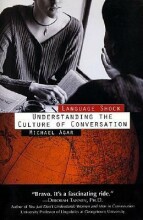Summary: Exploring Intercultural Communication Language In Action | 9781136029769 | Zhu Hua
- This + 400k other summaries
- A unique study and practice tool
- Never study anything twice again
- Get the grades you hope for
- 100% sure, 100% understanding
Read the summary and the most important questions on Exploring Intercultural Communication Language in Action | 9781136029769 | Zhu Hua
-
1 Language Classrooms
-
1.1 Culture and language learning and teaching (Does learning a language mean learning a culture?)
-
What does learning another language inevitably exposes the learner to?
Facts and practices of a society or community where the target language is used. -
What is the primary motivation for learning their language for many language learners?
Learning about the cultural traditions and practises of other people. -
What is another reason to learn a language?
Language learning provides an opportunity to interact with the people whose language they are learning and to understand their culture and traditions. -
1.1.1 Teaching culture as content
-
What does the culture-as-content approach to language teaching focus on?
It focuses on getting to know the language community and developing cultural awareness through fact finding. -
What was culture-as-content language teaching very much limited to in the early days?
Literature, history and geography. -
What did Kramsch (1991) call literature, history and geography?
The four Fs, i.e. food, fairs, folklore and statistical facts. -
What does Culture with a Capital C (Brooks, 1960) refer to?
Art, music, literature, politics, etc. -
What does culture with a small c (Brooks, 1960) refer to?
The behavioural patterns and lifestyles of everyday people, which is less visible, but equally significant, if not more so. -
What did Nostrand (1967, 1974) believe?
A culture is characterised by certain core elements such as values, traits and worldviews. He proposed an inventory of themes under the categories of culture, society, ecology, and the individual personality as a way of discovering patterns in feelings, beliefs, and thought processes of members of the target culture. -
Which practical teaching techniques have been developed to raise the learner's cultural awareness as part of language (Hughes, 1986; Risager, 2007)?
- Culture capsule
- Culture assimilators
- Culture island
- Drama
- Higher grades + faster learning
- Never study anything twice
- 100% sure, 100% understanding
Topics related to Summary: Exploring Intercultural Communication Language In Action
-
Language Classrooms - Culture and language learning and teaching (Does learning a language mean learning a culture?) - Teaching culture as content
-
Language Classrooms - Culture and language learning and teaching (Does learning a language mean learning a culture?) - Teaching language-and-culture: an integrated approach
-
Language Classrooms - Culture and language learning and teaching (Does learning a language mean learning a culture?) - Teaching culture through language: an intercultural approach
-
Language Classrooms - Culture and language learning and teaching (Does learning a language mean learning a culture?) - Moving towards a critical understanding of the notion of culture in global cultural flows
-
Language Classrooms - Culture of learning (How many times do I need to practise?)
-
Language Classrooms - Multicultural classrooms (Why is she so quiet in the classroom?) - Classroom participation
-
Language Classrooms - Multicultural classrooms (Why is she so quiet in the classroom?) - Student-teacher interaction
-
The workplace - Meetings (Has anything been decided in the meeting?)
-
The workplace - Small talk (Haven't seen you for ages!)
-
The workplace - Humour (I didn't get that!)
-
Business - Advertising (Buy it, sell it, love it)
-
Business - International business negotiation (Why do they talk a lot about nothing really?)
-
Business - More language and communication matters (Dear Respected Mr Lin, How are you?)
-
Business - Chapter summary
-
Family - Migrant families (I'm British on paper, but am I English?)
-
Family - Intercultural couples (Can love speak without words?) - Living with intercultural differences
-
Family - Intercultural couples (Can love speak without words?) - Language choice
-
Study abroad and tourism - Study abroad (Does 'real' experience help with my language and intercultural learning?)
-
Study abroad and tourism - Tourism (Can I take a picture with you?)
-
What are culture-specific ways of communication and why?
-
What are the key factors that may cause misunderstanding in intercultural communication?
-
What contributes to successful communication?
-
How to develop intercultural communicative competence
-
The relation between language, culture and thought: the classical question
-
Theories of culture: a fundamental question
-
Language, identity and interculturality - Identity: multiplicity and types
-
Language, identity and interculturality - Cultural identity
-
Language, identity and interculturality - Interculturality: from being to doing cultural identities

































